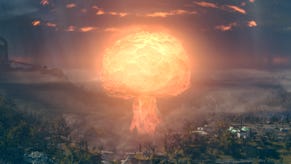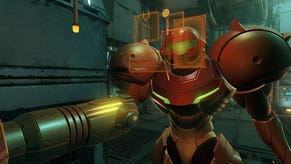Analysts doubt Sony will risk gamer backlash with anti-used game tech for PS4 as GameStop shares fall
"Sony would be materially hurt if PS4 blocked used games and next Xbox and Wii U did not."
Shares in gargantuan US game shop GameStop fell seven per cent yesterday following the news that Sony had filed a patent designed to restrict the use of second-hand games.
The patent is for tech that matches individual game discs to user accounts and rejects games associated with another user account. Discs would come branded with a contactless tag which would be recognised and read by your console using the same sort of NFC technology present in modern bank cards.
The patent does not specify which device it is intended for - nor does it guarantee the technology will be used - but it is seen as a statement of intent by a company that has already dabbled in its own Online Pass scheme for its first-party games and a possible feature of the upcoming PlayStation 4.
For GameStop - and other game shops such as the UK's GAME - the second-hand market is hugely important. Nearly half of GameStop's profits come from the sale of games traded in by customers.
Analysts, though, cautioned against an overreaction. In a note Wedbush Morgan analyst Michael Pachter said the patent was unlikely to result in widespread blocking of used games due to the potential backlash among gamers it would cause.
“This patent reminds me of SOPA,” Pachter said, “and if Sony puts the technology into the next PlayStation and any publishers attempt to limit the playing of used games, I expect the consumer backlash to be similar.”
While Pachter admits Sony may intent to block the playing of used games, he thinks it more likely that Sony intends for the tech to enable publishers to do so if they so wish. Pachter does not believe Sony or any publisher is, right now, “foolhardy enough to take such a risk”. Rather, the patent provides Sony with the flexibility to enable the technology in the future.
Another explanation is that the tech could be used to combat the use of counterfeit games.
Sony is yet to comment on the patent, but in May 2012 Pachter said US boss Jack Tretton told him he was not in favour of blocking second-hand.
“For the record, I'm totally opposed to blocking used games,” Pachter said Tretton told him. “I think it is great for the consumer that they can buy those. We have a customer that buys our console late in the cycle, pays less and is looking for value-priced games. I think it would be anti-consumer for us to do that.”
However, Tretton qualified that statement, saying: “I don't know, maybe Japan will think something different but that's my view.” It should be noted that this latest patent was secured by Sony Computer Entertainment Japan.
Will Sony actually implement such a measure? “Sony benefits little from a unilateral decision to block games,” Pachter said. “The company's first party software sales represent less than 10 per cent of overall sales on its consoles, and it is unlikely that blocking used games would result in a lift of more than 10 per cent in new game sales. That means that Sony's sales would rise only marginally if the PS4 blocked used games.”
He added: “Sony would be materially hurt if its console blocked used games and competitor consoles from Microsoft and Nintendo did not. The Wii U is already on the market with no used game prohibition, and we believe that Microsoft would take advantage of Sony's prospective decision to block used games by marketing that its own next generation did not block used games.
“If we are right, consumers would favour the console that provided more choice, leading to loss of market share for Sony's console and a benefit to Microsoft's.”
With both Sony and Microsoft rumoured to be readying announcements for their next-generation consoles this year, it won't be long until both companies reveal their strategies.
For GameStop's part, it has said it does not believe console manufacturers would take the step of restricting second-hand games.
In March last year, during an investor call, GameStop executives said such a move would be "unlikely".
"We think it's unlikely that there would be that next-gen console because the model simply hasn't been proven to work," Paul Raines, GameStop CEO, said. "Remember, used video games have a residual value. Remember GameStop generates $1.2 billion of trade credits around the world with our used game model. So, consider taking used games out of that, you'd have to find new ways to sell the games.
"And, our partners are good partners. The console companies have great relationships with us." At the time GameStop pointed out that the majority of the $1.2 billion of credit it generated went back into purchasing a video game. For many gamers, the shop said, this made buying games more affordable.
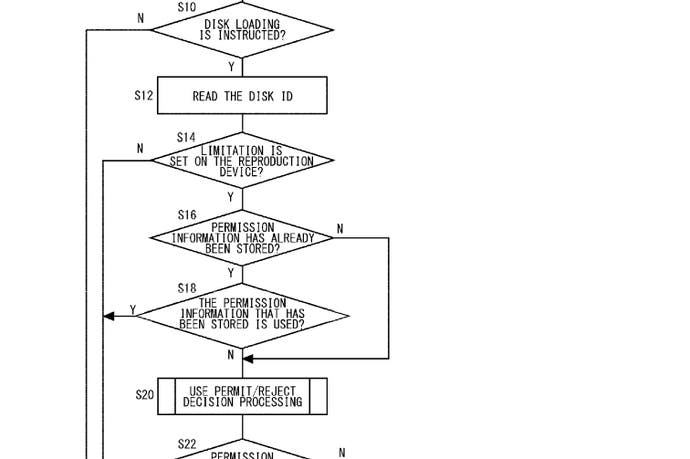

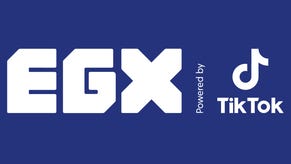
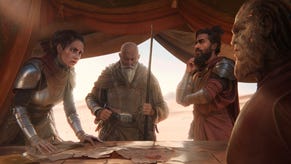
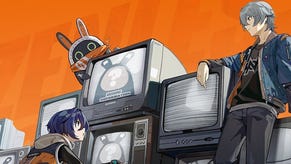
.png?width=291&height=164&fit=crop&quality=80&format=jpg&auto=webp)
